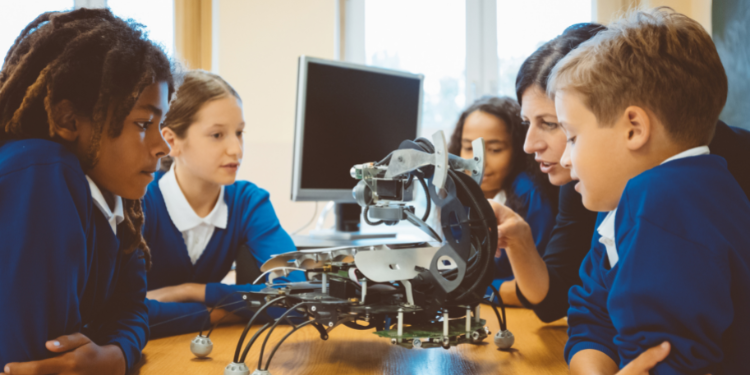
13th March 2023
British Science Week 2023
It is currently British Science Week, a celebration of science, technology, maths and engineering. The focus is to feature and provide entertaining, amusing and fun events and activities for people across the UK.
Theme
The theme for British Science Week 2023 is ‘Connections’. The reasoning behind the theme is to celebrate the togetherness of society after a period where isolation and solitude was a big part of everyone’s lives during the lockdowns. Relating to science, connections have a huge involvement as many innovations in science and technology have been possible due to connections between a group of people or partners in research! One of the most notable scientific discoveries was the discovery of DNA. Partners James Watson and Francis Crick found out about the double-helix structure of DNA and how unique DNA is and the things it causes. The discovery has helped doctors and scientists to understand disease to a greater degree and may someday help to cure or prevent other certain diseases. The pair connected their knowledge and worked together and were awarded a Nobel Prize for their discoveries.
Connections don’t just relate humans’ actions between one another, they could also mean the actions in organisms, in space or the connection humans have with certain situations, an example of this is the connection between humans’ actions and the change in the world’s climate.
Connections in science:
The Evolution Theory- the idea that all animals and even plants are related back to one organism and are connected in some way.
The Human Body- how the human body is made up and connected. The explanation of how the human body all comes together and is connected. There is so much to explore such as the human skeleton, the body, the lungs, the organs, the cells and the DNA system.
Electricity- how electrical circuits have currents, links and connections.
Science at School
Throughout children’s schooling lives, science will be a core subject up until year 11 or age 16 so it is an important part of their education for many years. British Science Week can be a great opportunity for students to embrace the fun side of science. Taking part in activities can be an excellent way for children to learn and build their knowledge in the areas of science, technology and maths. A brilliant way to do this is by offering an opportunity for students to take part in practical demonstrations, practical activities are fun and engaging for students and help them to learn at the same time.
This practical idea is ideal for school students of every age!
This activity is not only fun but will make sure children brush their teeth properly and lower their fizzy drink intake:
What you’re going to need: 4 Eggs, a bottle of coke, a bottle of lemon juice, 4 glasses and some sticky notes.
1) The first thing you will want to do is set up your glasses.
2) Then pour half of your Coca-Cola into 2 of the glasses and half of the lemon juice into the other two glasses
3) You will then want to label your glasses with your sticky notes e.g. coke 1, coke 2, juice 1 and juice 2. Coke 1 and Juice 1 will be your eggs that are covered in toothpaste, coke 2 and juice 2 will be the uncovered eggs.
4) Now you need to coat 2 of the eggs in toothpaste and put them into the glasses labelled with the number 1 on, after that place your remaining eggs in the glasses with number 2 on them. After you have done this, leave the eggs overnight.
5) Return to the eggs the following morning and remove them from their glasses, rinse them in water, dry them and then place them back in their respective glasses.
6) Record your findings and discoveries- you should realise that the eggs with toothpaste were significantly less damaged and weaker than the ones without. The egg that was left in Coca-Cola without toothpaste will be stained and may look brown or discoloured. However, the egg that was covered in toothpaste would have been protected from staining and changing colour. The egg that was plunged in lemon juice whilst raw will feel and look worn down and soft, it will be very brittle. But the egg that was covered in toothpaste will be significantly stronger and harder.
The eggs represent your teeth and the effectiveness of toothpaste is proven through this quick and easy experiment.
We hope this activity was fun, successful and eye-opening for your students!
If science is your passion and you’d like to pass your knowledge to the next generation, click here to check out our latest vacancies!
Recommended for you
Top 5 questions to ask at the end of a teacher interview
An interview for a teaching role can often be a daunting prospect...
- Your Career
- •
- 3 Min Read
Celebrating St. Patrick’s Day In The Classroom
Dia Duit! The 17th of March is St. Patrick's Day in the...
- Your Career
- •
- 3 Min Read
Ways to support your students during Ramadan
What is Ramadan? Ramadan, the ninth month of the Islamic calendar has...
- Your Career
- •
- 3 Min Read


